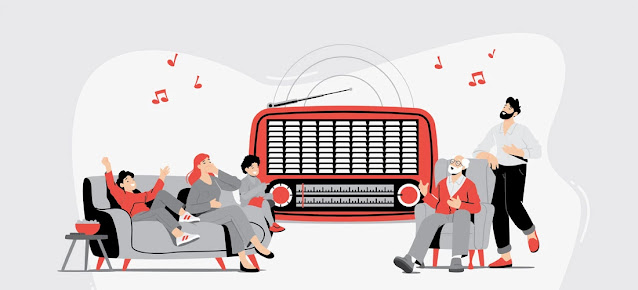Introduction
Radio, one of the most enduring forms of mass communication, has been captivating audiences since its inception. Despite the rise of newer media platforms, radio continues to maintain a significant presence in the lives of people around the world. At the heart of this medium are the individuals known as "radio listeners." In this article, we delve into the definition and meaning of radio listeners, exploring their significance, behaviors, and impact on the broadcasting industry.
Understanding Radio Listeners
Radio listeners, in simple terms, are individuals who tune in to radio broadcasts to listen to a variety of programming, which can include music, news, talk shows, interviews, and more. These individuals are an integral part of the radio ecosystem, forming a diverse and engaged audience that spans various demographics, interests, and preferences.
Radio listeners can be broadly categorized into two groups: passive and active listeners. Passive listeners often have the radio playing in the background while they go about their daily activities. They might catch snippets of content, but their attention is not fully dedicated to the radio. On the other hand, active listeners intentionally engage with the radio, choosing specific programs, stations, or segments to focus on. They might tune in for specific information, entertainment, or companionship.
Characteristics of Radio Listeners
Diversity: Radio listeners come from all walks of life and encompass a wide range of ages, cultures, and socio-economic backgrounds. This diversity contributes to the broad appeal of radio as a medium.
Engagement: Active radio listeners are known for their high level of engagement. They often participate in contests, call-ins, and contribute to discussions or debates on talk radio shows.
Loyalty: Many radio listeners form strong attachments to particular radio stations, shows, or hosts, creating a sense of loyalty and community within the listener base.
Companionship: Radio often serves as a companion for listeners during solitary activities such as driving, working, or exercising. It provides a sense of connection and comfort.
Impact of Radio Listeners
Audience Measurement: Radio listenership is a crucial factor for radio stations and advertisers. Audience measurement tools and ratings help determine the popularity of programs, enabling stations to tailor their content to meet listener preferences.
Advertising Revenue: The presence of a dedicated and engaged listener base makes radio an attractive platform for advertisers. Advertisers can target specific demographics based on the audience of a particular radio station or show.
Cultural Influence: Radio listeners are influenced by the content they consume, whether it's music, news, or opinions. Radio plays a role in shaping cultural trends and opinions within society.
Community Building: Radio listeners often share a sense of community with fellow listeners who share similar interests. This sense of connection can extend beyond the airwaves, fostering offline interactions and gatherings.
Conclusion
Radio listeners form the bedrock of the radio broadcasting industry. Their diverse characteristics, engagement, and loyalty contribute to the enduring relevance of this medium in the digital age. From passive background listeners to actively engaged enthusiasts, radio listeners play a crucial role in shaping the content, impact, and cultural significance of radio broadcasts. As technology continues to evolve, the relationship between radio and its listeners will undoubtedly adapt, ensuring that the art of radio remains a cherished part of our media landscape.


